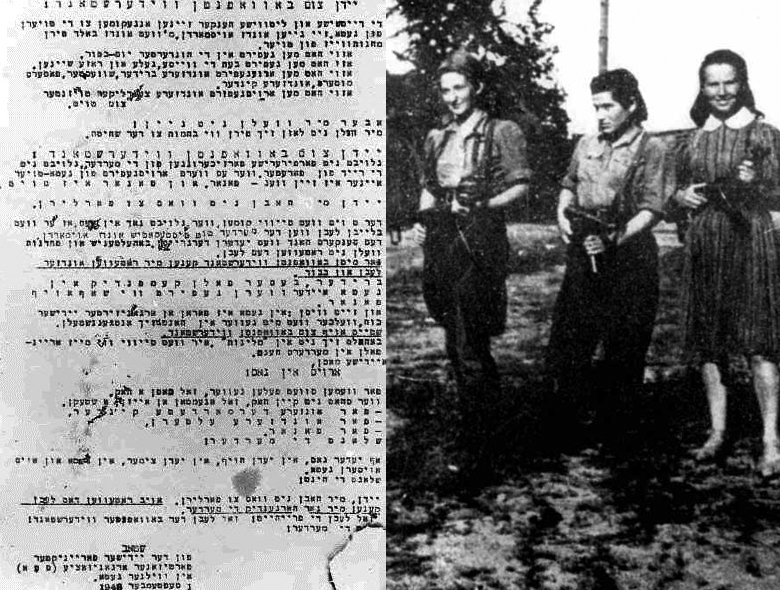O P I N I O N
by Evaldas Balčiūnas
The Vilna Ghetto memoir of Rozka Korczak-Marlé (1921–1988) is unfortunately completely unknown to Lithuanians today. I have therefore decided to translate the book into Lithuanian (from the Russian edition that Korczak herself edited), and have published two samples, here and here, on Anarchija.lt.
Rozka Korczak came to Lithuania to seek refuge from Hitler-occupied Poland in late 1939 and went on to become a major partisan hero in the anti-Nazi resistance in the Vilna Ghetto and then in the forests of Lithuania. There are numerous internet sources on her biography (e.g. here, here).
It seems to me that this book by a remarkable woman is not just a history of an important chapter in the history of Litvaks. It is also an important chapter in Lithuanian history, and the Lithuanian people should have the opportunity of becoming acquainted with it.
Frankly speaking, my book translation project was also motivated by the actions of those pro-fascist officials of the Lithuanian Republic who have launched a loathsome assault on the heroes of the book: the Jewish anti-Nazi partisans, whose families perished at the hands of the Nazis and their local collaborators, who went on to fight for the freedom of Lithuania and Europe in our country’s forests.
I think such wicked work could not be done so easily if Lithuanian readers knew their history better, and not only from a state-supported ultranationalist perspective. It would be very useful for a Lithuanian reader to have a look at the uncomplicated multiple references to what the Lithuanian chapún was doing in Vilnius from the moment of Hitler’s 1941 attack on the Soviet Union.
It could become a vaccine against the pro-fascist narrative on “patriotism” of those who so enthusiastically served the Nazis. That is the narrative that is now promulgated with the help of much of our taxpayer money by pro-fascist historians and politicians here. I don‘t have sufficient resources at the moment, that is why I have made the most beginning of a translation of this extract that recounts the events of December 1941 in the Vilna Ghetto.

Rozka Korczak (middle) flanked by Zelda Treger (left) and Itke Kempner. At left is the manifesto of the United Partisan Organization in the Vilna Ghetto (in Yiddish).
I plan to continue to the episode were Korczak presents three stories of people who escaped the pits of Paneriai (Ponár) and the horrible arithmetic of Jewish massacres in our capital city in 1941.
In order to translate and publish more, I need help. I need the consent of people that have copyright to the book. Perhaps some readers of DefendingHistory.com can help me find them.
Another difficulty lies in the complicated spelling of personal names and toponyms. Being a non-Jew, remote from Jewish culture, I can make mistakes. I need an editor who knows both Jewish culture and the Lithuanian language well (or two corresponding advisors). The volume is a large one, and I doubt whether any editor will agree to edit it for free.
On this occassion I remembered old Jewish story about a poor man who comes to a rabbi to ask for an advice how to solve his difficult problems. The rabbi says: “The Good Lord does not give a person problems that the person cannot solve. Either you can solve the problems, or the problems are not yours.”
I happen to be an atheist. Still, I like this way of treating problems. For now I don’t know whether these problems are solvable or whether they are not mine. That’s why I will make a pause and wait and see. If any readers would like to see the second experimental extract I have prepared, please let me know, and I will provide the link.
And if you have some advice, be so kind and give me the advice.